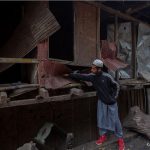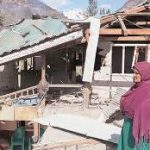Biden reverses Trump’s era nuclear related sanctions against Iran

Washington: In a complete surprise move, the US has taken back some of Trump era’s nuclear related sanctions against Iran. In a fresh move, the US President, Biden has announced that now foreign companies would be allowed to be part of some civilian nuclear projects in Iran.
According to new announcement Iran’s Bushehr nuclear power station, Tehran Research Reactor and Arak heavy water plant are now open for foreign companies to carry on previous work. Experts believe that this is an apparent attempt by White House to push forward negotiations to restore the nuclear deal known as the Joint Comprehensive Plan of Action (JCPOA).
“The waiver with respect to these activities is designed to facilitate discussions that would help to close a deal on a mutual return to full implementation of the JCPOA and lay the groundwork for Iran’s return to performance of its JCPOA commitments,” the State Department said in a notice to Congress seen by the Associated Press.
As part of the JCPOA, Tehran agreed in 2015 to strict oversight of its nuclear energy program – maintaining that it never sought to obtain atomic weapons – in exchange for relief from sanctions imposed by the UN at the US’ urging. Former US President Donald Trump, however, decided that the deal was not good enough and unilaterally reimposed those sanctions in 2018. Some waivers granted at the time were later rescinded in 2020 as part of Trump’s ‘maximum pressure’ campaign.
Upon taking office in January 2021, US President Joe Biden said he was open to returning to the JCPOA if Iran came back into compliance. Tehran responded that Washington needs to come into compliance first, starting with the removal of sanctions.
“If the parties are ready to lift sanctions, the ground for reaching an agreement on nuclear issues is absolutely ready,” President Ebrahim Raisi told RT in an exclusive interview last month.
The State Department, however, emphasized that the sanctions relief serves “US nonproliferation and nuclear safety interests” and should not be seen as a “commitment or as part of a quid pro quo.”







Comments